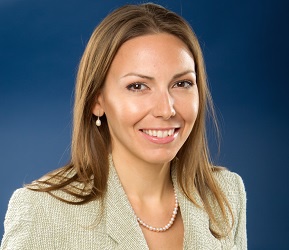Britain’s vote to leave the European Union is often portrayed as a sign of closing itself off from the rest of the world. Although there is no denying that concerns about immigration played a part in last year’s Brexit referendum, there is a danger in overlooking a crucial strand of Brexiteers’ thought: the case for a global Britain. With the UK set to have an independent trade policy following Brexit, its leaders’ staunch support for free trade should make the rest of the world optimistic and hopeful everyone else will follow.
Launching the Institute for Free Trade a few weeks ago at the Foreign Office, Boris Johnson, the UK’s Secretary of State for Foreign and Commonwealth Affairs, set the stage for the upcoming trade talks: “The only reason it makes sense today to have this new Institute for Free Trade is that it’s only now, after 44 years, that we are finally taking back control of our tariff schedules in Geneva. … It is only now that the UK is able to resume its historic function as the world’s leading campaigner and agitator for free trade.” This point was reiterated by Liam Fox, Secretary of State for International Trade, who said, “We need to champion that cause of free trade once again loudly and unequivocally.”
The newly founded think tank will be presenting the benefits of free trade to the wider public, often wary of global trade and its impact on both developed and developing parts of the world. This week the institute hosted a Global Trade Summit, where its founder, MEP Daniel Hannan, suggested the UK “can be the country that, by enriching itself, enriches everyone else.” and the esteemed Deirdre McCloskey argued that everyone understands the law of comparative advantage because we all cooperate. Australia and Bolivia were presented as free trade success stories. When Australia coupled free trade with internal deregulation of agriculture, it subsequently enjoyed 26 years of economic growth. Meanwhile, countries like Argentina and Venezuela are cautionary tales of the dangers of protectionism and the fallacy of the import substitution policy.
Free trade should be recognized for what it is: an exchange among free persons, a process, a means that - when people are free - brings about their true flourishing as God intended.
A popular question was how can we make a better case for free trade? While one of the speakers, Mark J. Perry of American Enterprise Institute, reminded that trade should not be spoken of using the vocabulary of war, of “win-lose.” Nonetheless, when discussing trade, economists and politicians use the terms of “we” vs. “them” – Americans vs. Chinese, British vs. European, and so on.
This is where the wisdom of Catholic social teaching may strengthen the case for the freedom to trade. The Roman Catholic Church reminds us that we are all a family, and man-made restrictions should not be put up to prevent the cooperation of its members. St. John Chrysostom wrote: “God filled the earth with goods, but gave each region its own peculiar products, so that, moved by need, we would communicate and share among ourselves, giving others that of which we have abundance and receiving that which we lack.”
Of course, it is not just trade in raw materials that God has enabled for us to engage in. Each human being is unique, with his or her own talents and capacities, so trade allows us to exchange the diverse fruits of our labor. By restricting trade, politicians undermine, not only trade as such, but also the specialization and realization of human talents. Naturally, it is not “America” or “Britain” which trades with “China,” but American and British individuals, families, communities, and companies that trade with their Chinese counterparts. When viewed this way, it becomes apparent just how meaningless is the obsession with national balances of trade, which assume it is countries that trade, rather than the individuals living there.
Pope St. John Paul II stressed, in his encyclical Sollicitudo Rei Socialis, that “the economically weaker countries, or those still at subsistence level, must be enabled, with the assistance of other peoples and of the international community, to make a contribution of their own to the common good with their treasures of humanity and culture, which otherwise would be lost for ever.” When rich economies surround themselves with unscalable trade barriers, it is not only the consumers of the rich countries who suffer, but also the producers of the poor countries. The paramount example of this is agriculture, whereby the leaders of the rich states protect their (already rich) farmers, inhibiting the development of farmers in the poorer parts of the world. Following Brexit, the UK will also no longer partake in the most detrimental of the EU’s policies – the Common Agricultural Policy, which subsidizes European farms at the expense of European consumers and worldwide agricultural producers.
Obviously, free trade should not turn it into an idol. We often hear that free trade has lifted billions of people out of poverty, when in fact it is billions of people – through their hard labor and unrestricted exchange – who lifted themselves out of poverty. Rather than being demonized by its opponents or idolized by supporters, free trade should be recognized for what it is: an exchange among free persons, a process, a means to a better end, not an end in itself. A means that, when people are free, brings about their true flourishing as God had intended.
(Photo credit: Matt Logelin. This photo has been cropped and modified for size. CC BY 2.0.)




